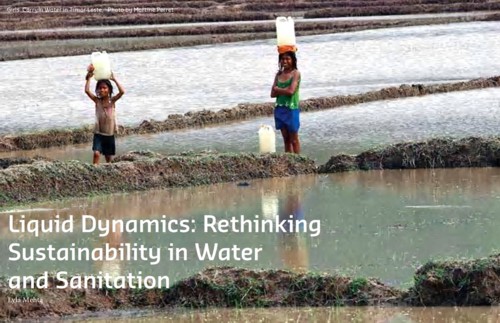/regions/india
India
River basin planning for Ganga : Lessons from Murray-Darling Basin Authority
Posted on 02 Feb, 2012 09:15 PMThis interactive session with NGOs working on water and river issues was held in continuation of the “Living rivers, dying rivers” series at the request of AusAid. The meeting was chaired by Prof. Ramaswamy R. Iyer, Honorary Professor, Centre for Policy Research and an author of books and articles on water while the lead speaker Dr.
Community monitoring in water and sanitation projects - A facilitators manual by PRIA
Posted on 02 Feb, 2012 11:59 AMThis manual is based on the work that PRIA was involved in that included facilitating the process of social development and monitoring, and for guiding the process of developing models for community monitoring linked to community action, for child survival and development in six project sites in India.
This manual is divided into three key sections:
Draft National Policy 2012 seems to help only vested interests, not the farmers or the environment says SANDRP
Posted on 01 Feb, 2012 09:18 PMSource: SANDRP
Draft of the National Water Policy 2012 released by the Ministry of Water Resources (MoWR) on 31st January 2012 invites comments from the general public till 29th Feb 2012
Posted on 01 Feb, 2012 02:01 PMA section of the water sector practitioners and experts, have been engaged in the process, and a summary of the discussions so far, is available here.
Strengthening quality monitoring to provide safe drinking water: Common treatments and analyses
Posted on 30 Jan, 2012 10:59 AMAuthor : Ravi Savant
Contextualising urban water supply in a changing environment: India Urban Conference, November 17-20 2011
Posted on 30 Jan, 2012 09:21 AMIt aimed to set the challenges faced by urban planners in the current economic, socio-political, and ecological landscape. This would enable informed and negotiated choices on urban development. The stated objectives of the conference are as follows:
Liquid Dynamics: Rethinking sustainability in water and sanitation
Posted on 20 Jan, 2012 06:55 PMThis paper begins with the slow rate of progress in achieving the millennium development goals of environmental sustainability, especially in the areas of water and sanitation. This is due to the disconnect between the global rhetoric (which often focuses on water as an economic good) and social realities (such as the cultural attitudes towards water)

Looking beyond Durban:Where to from here - An article in EPW
Posted on 20 Jan, 2012 03:58 PMThe Durban climate negotiations have set into motion new negotiations, with the possibility of re-opening old and contentious issues, while at the same time leaving the global climate regulatory framework unchanged. While disappointing, this does create a possibility of starting anew.
Cold wave in North India claims several lives, disrupting normal conditions, heavy snowfall in Himachal Pradesh and Kashmir
Posted on 17 Jan, 2012 09:12 AMA western disturbance caused a cold wave to sweep across the northern part of the country, claiming several lives and disrupting normal conditions. Reports of water pipes freezing, roads becoming unmotorable have come in from several parts of the country. This might affect crops this winter.

MoUD, invites applications for National Urban Water Awards 2011 – Apply by January 31, 2012
Posted on 16 Jan, 2012 02:15 PMDescription:
The annual National Urban Water Awards (NUWA) have been instituted by the Ministry of Urban Development (MoUD), Government of India, to recognize, inspire and celebrate excellence in urban water management.